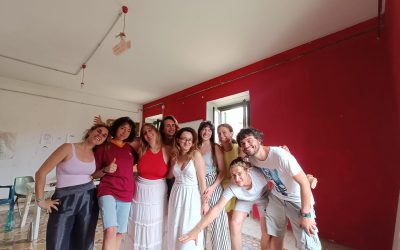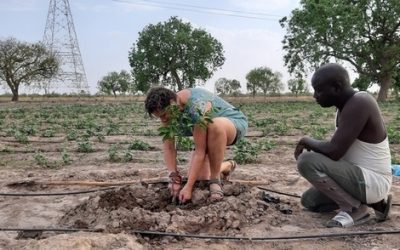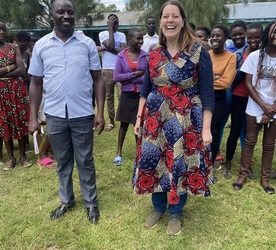Refugees
Balkan Steps - Alessandra's story
The project took place in:
Serbia
Other SCI experience
Written by Alessandra from Italy
In the last weeks we had the chance to have a glance at the hardness of the reality that the refugees here are forced to face every day and to try to understand it better.
All of them keep trying the so called “Game”, a nice name to describe the never ending attempts at crossing the border, which is everything but fun: several days with limited food and water trekking across the local woods. Sadly, this activity end, for the majority of the refugees, with the push backs by the police and borders authorities, who are not hesitant to use every possible mean, even violence, in order to prevent the refugees to succeed. This is true, it is worth to highlight, both for the Croatian and the Hungarian border.
After weeks spent in their company, we got closer to them and established friendly relationships with many. We never know whether to hope to never see them again, hoping they have reached better destinations, or to meet them again on the next day.
Often, at night, during the food distribution, we see groups of people coming back from the Game.
A couple of nights ago, a group of about 20 young men approached: exhausted, covered in mud and injuries, looking for something to eat. Food was already finished and we could not do anything but staring in silence, as the girls from SolidariTea tried to gather something to give them, among the remains of fruits and biscuits left in their van. The guys explained that they wanted to try again to cross later that night, with no time to rest. We were shocked.
Chatting with them, it is clearly possible to see how draining this lifestyle is. A girl from Austria, who has volunteered for several months at the infamous barracks in Belgrade, explained to us how sad she was in seeing that one of the guys she met in Belgrade, once smiley and positive, was now in Sid, looking clearly upset, his eyes lifeless, due to the use of drugs and alchool. Drug abuse, unfortunately, is not rare, and it’s the only way that many of them have to cope the abuses and the stress of the situation.
A few days ago, during the showers, a man gave me a paper with the timetable of the trains going towards Italy. He explained how it would takes two nights hidden in a container to arrive in my country, which seems to be also one of the preferred destinations for the refugees. We observe that on the one hand, there is too often a lack of knowledge about the possible risks occurring during the way, and, on the other, a lack of geographical awareness. Once in the EU everything seems closer and easier, every possibility at one’s fingertips. We try our best to give suggestions without crushing their dreams and their hope for a better life. Hope is too often the only thing they have left, and we would never take it away from them.
Some of these guys have experienced every possible trauma, many of the stories we hear are unbelievable. We talk with people who have survived wars, tortures, retaliations from the Talibans, and who yet, are still here, alive. But not safe. A* was explaining to us how some days ago he was washing his clothes in the river at our usual showers spot and the police arrived: they not only beat him, but also took his belongings, burning them. A* was particularly sad for his diary, who he has been writing for five years, and the picture of his family and friends. We perceived his fear, his frustration and shame, who he shares with many other refugees. They find themselves living in a constant state of tension and worry, often relieving the abuses they had to sustain in the past. “the
only part of the day in which I’m feeling safe is when I am with you at dinner, we can stay together and have a bit of fun”, A* said us. It was with horror that, a few moments later we watched him collapsing on the ground, lost in convulsions. Sadly the scene became familiar to us as several people suffer from this condition and as our friend C* explained: “it happens when the heart talks too much”.
The project is called “Interventi Civili di Pace al confine serbo-croato” runned by SCI-Italy in cooperation with VCV Serbia: the aim of this project was to bring volunteers to the field and make them aware of the nowadays situations regarding people seeking refuge in Serbia.
You can still join!
Want to have your own volunteer experience for peace?
Read more Voices of Volunteers




